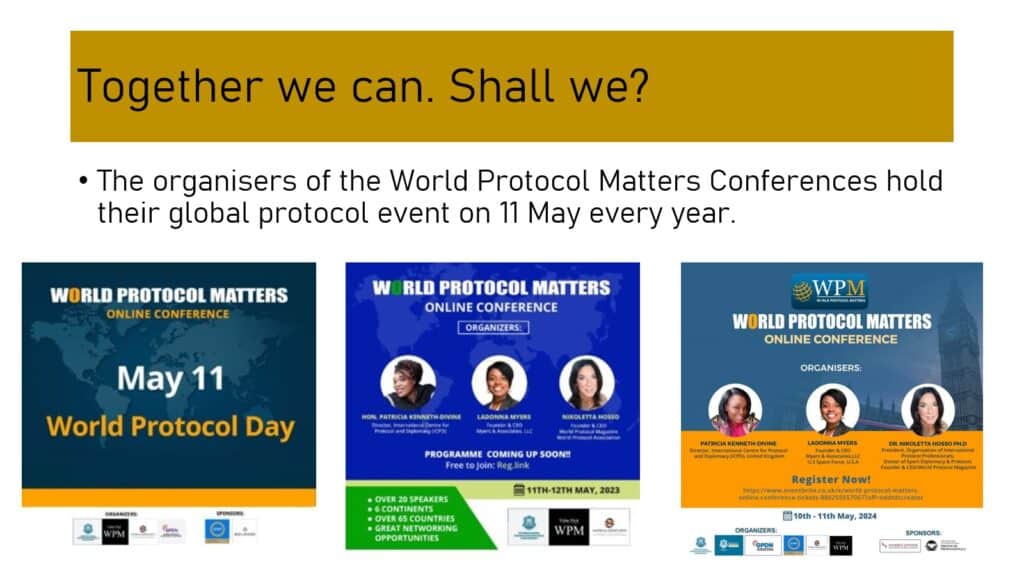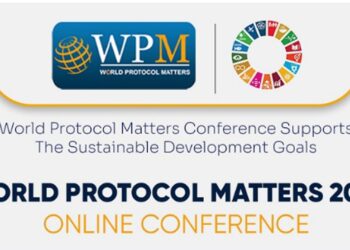The International Centre for Protocol and Diplomacy (ICPD) and its partners recently held the 3rd Edition of Afriprotocol Online Conference on the 4th of December 2024 which brought together renowned experts, diplomats, and thought leaders to explore the intricacies of diplomatic protocol, international relations, and Africa’s global positioning. Under the theme ” Better -Unified Africa as a Transformative Agent: The Role of Protocol and Diplomacy Leadership.
The conference highlighted the significance of diplomatic protocol in Africa’s Transformational Agenda and to enhance Economic Growth. Experts emphasized the need for African countries to adopt a more strategic approach to diplomacy, leveraging cultural intelligence, and effective communication to foster meaningful partnerships. The importance of protocol in promoting national interests, facilitating economic cooperation, and resolving conflicts was underscored.
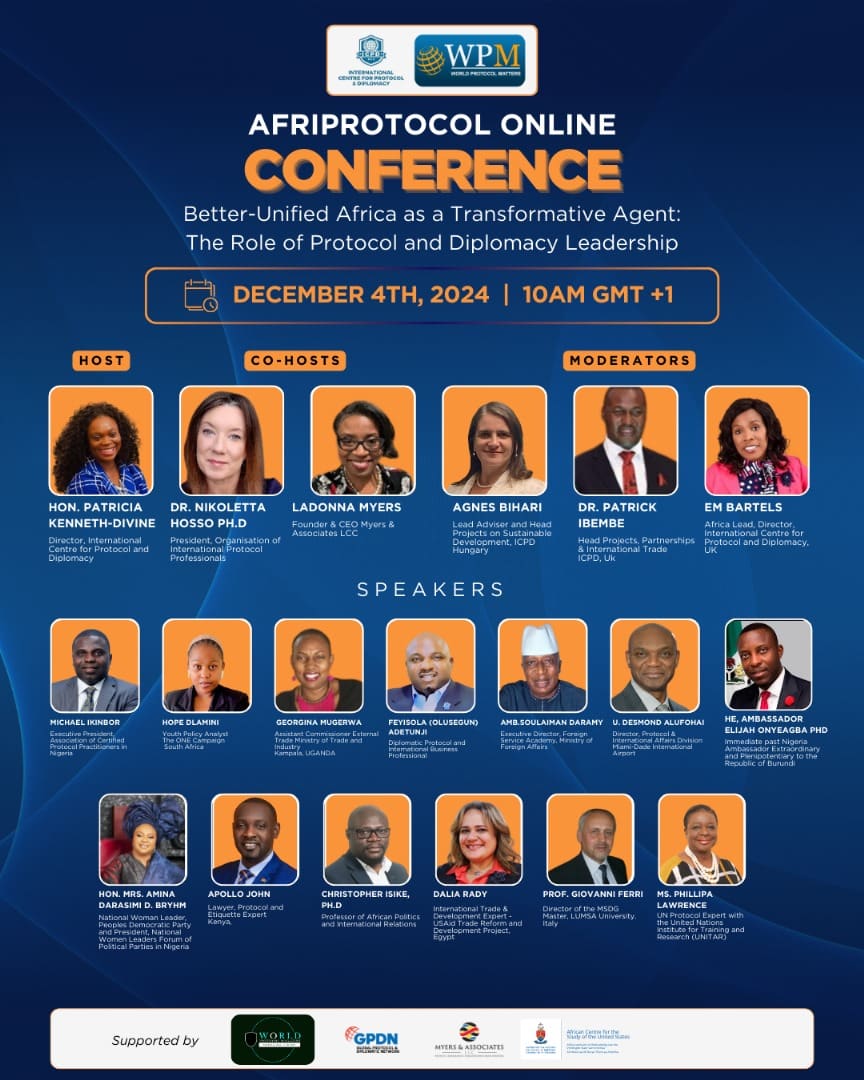
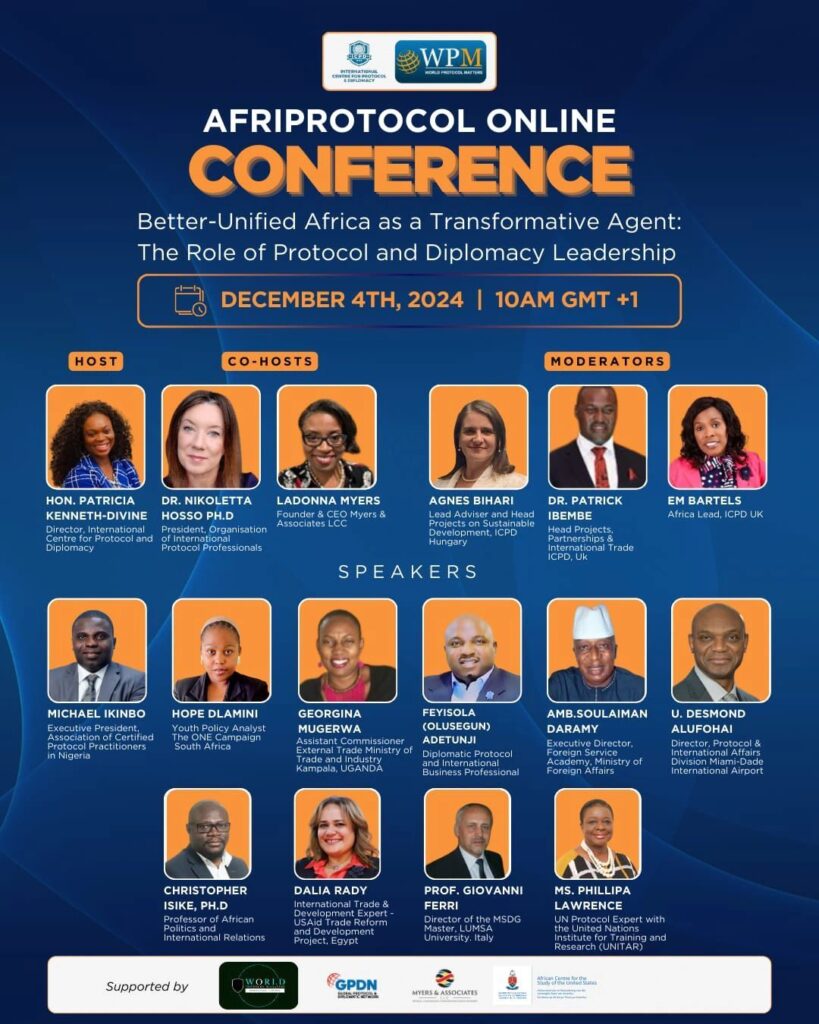
In her opening remarks, Patricia Kenneth-Divine, Director of the International Centre for Protocol and Diplomacy (ICPD) a distinguished diplomat and conference keynote speaker, emphasized the need for Africa to redefine its diplomatic approach, stating: “Africa must move beyond traditional diplomacy and embrace a more strategic, innovative, and inclusive approach that prioritizes the continent’s interests and values.” Kenneth-Divine’s remarks set the tone for a conference that would challenge conventional wisdom and explore new frontiers in African diplomacy.
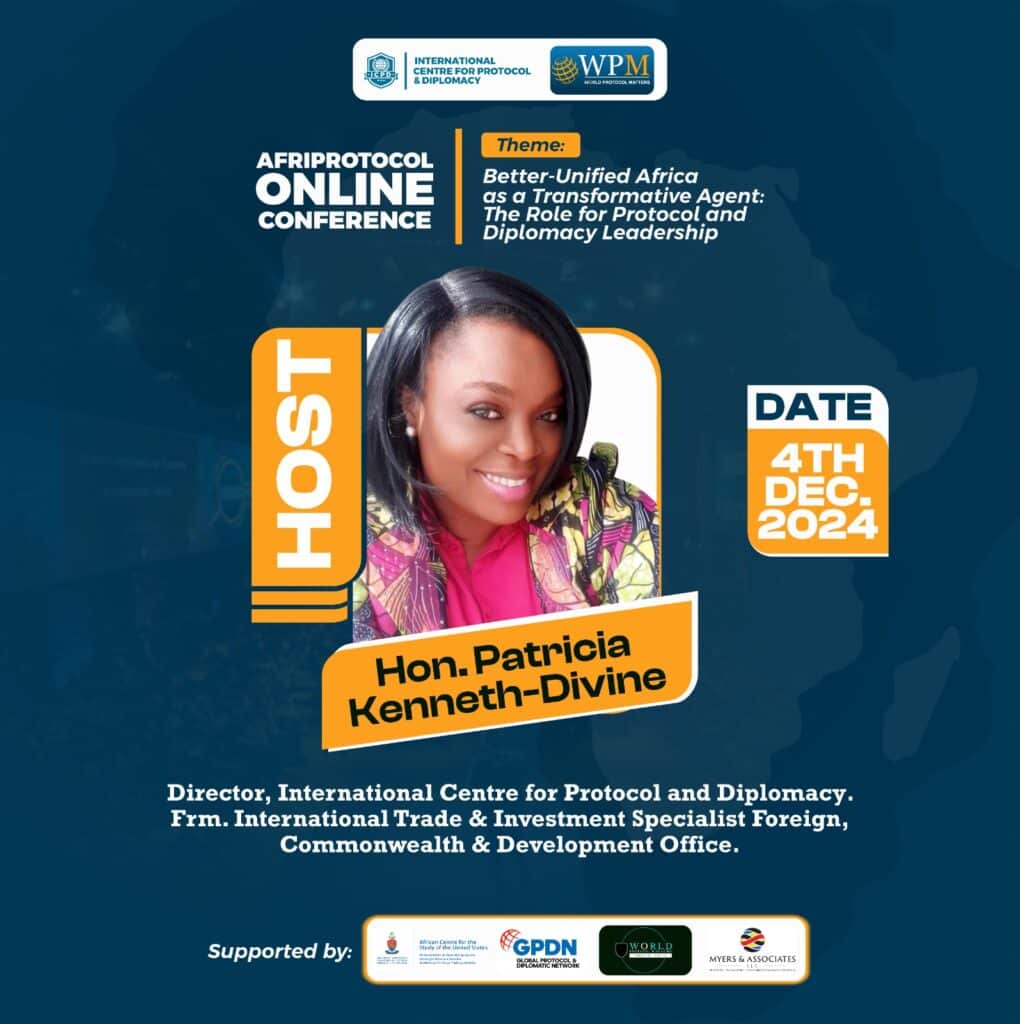
The Afriprotocol online Conference was supported by the African Centre for the Study of the United States, Global Protocol and Diplomatic Network (GPDN), Myers & Associates LLC and the World Protocol Magazines. Speakers were listed from the Organisation of International Protocol Professionals, Hungary, University of Pretoria South Africa, Crownesther International, USA, The One Campaign, South Africa, Lumsa University, Italy, USAID Trade Project, Egypt, United Nations Institute for Training and Research (UNITAR), World Trade Centre, Maimi-Dade International Airport amongst many others.
Africa’s Rising Global Influence
Speakers noted Africa’s growing influence in global affairs, driven by factors such as African Multilateralism, International Trade, demographic growth, economic expansion, Soft Power, Africa’s cultural Influence, Regional Connectivity, Africa’s Leadership in shaping the Multipolar World, Cultural Diplomacy, technological advancements etc The continent’s increasing participation in international organizations, such as the African Union and the United Nations, was cited as evidence of its rising profile. However, challenges persist, including the need for enhanced regional cooperation, improved governance, and more effective utilization of Africa’s vast natural resources.
*The Role of Economic Diplomacy in Africa’s Development*
Economic diplomacy emerged as a critical component of Africa’s diplomatic landscape. Experts discussed the potential for economic diplomacy to drive development, attract foreign investment, and promote regional integration. The importance of trade agreements, such as the African Continental Free Trade Area (AfCFTA), was emphasized, along with the need for African countries to develop more sophisticated trade negotiation strategies, facilitate the movement of people, promote economic integration.
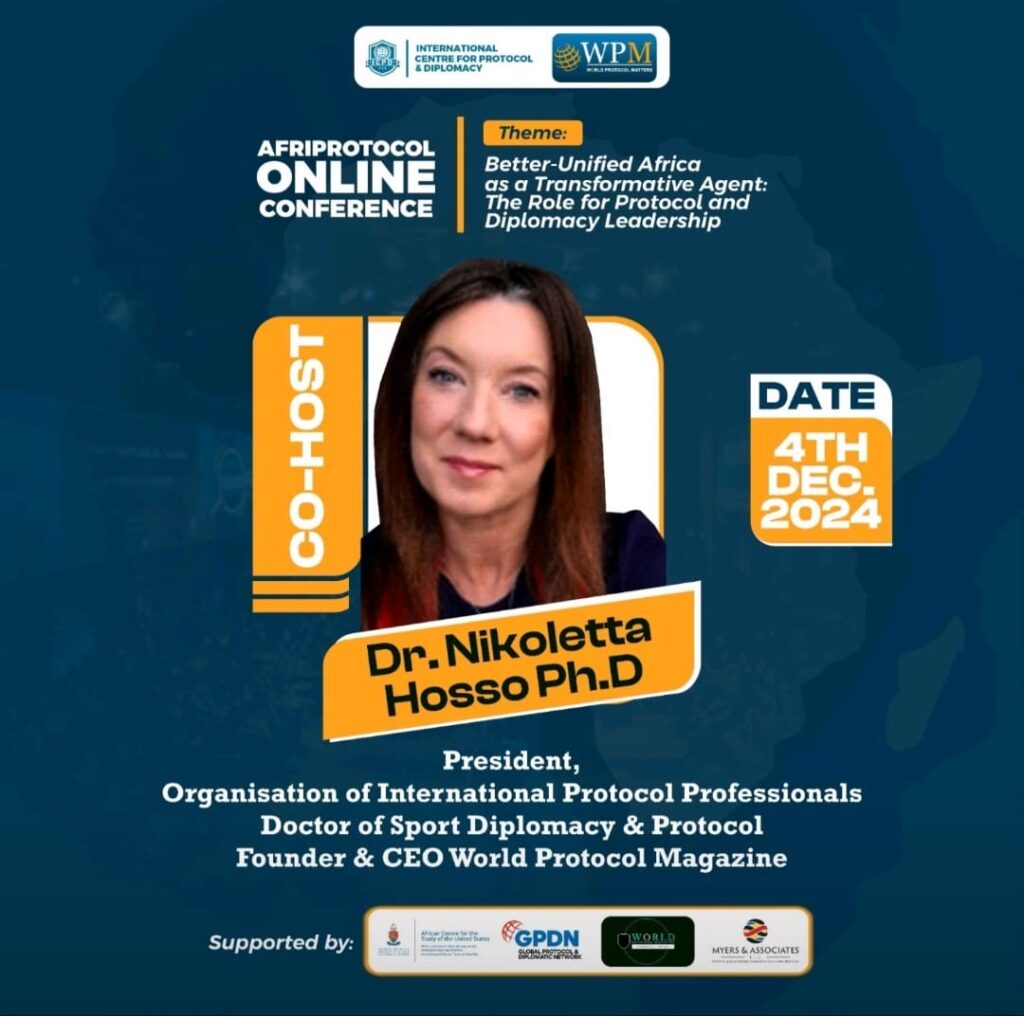
*World Protocol Day, May 11th * Global Initiative
The conference explored the impact of driving the world Protocol Day initiative. Speakers highlighted the opportunities presented by joining and signing the Petition to the United Nations to increased accessibility and the empowerment of Protocol in Africa. This important mission was presented by Dr. Nikoletta Hossó, President of the Organisation of International Protocol Professionals who also shared the story and history behind her initiative that she had first announced in 2020 at the World Protocol Organisation’s Summit.
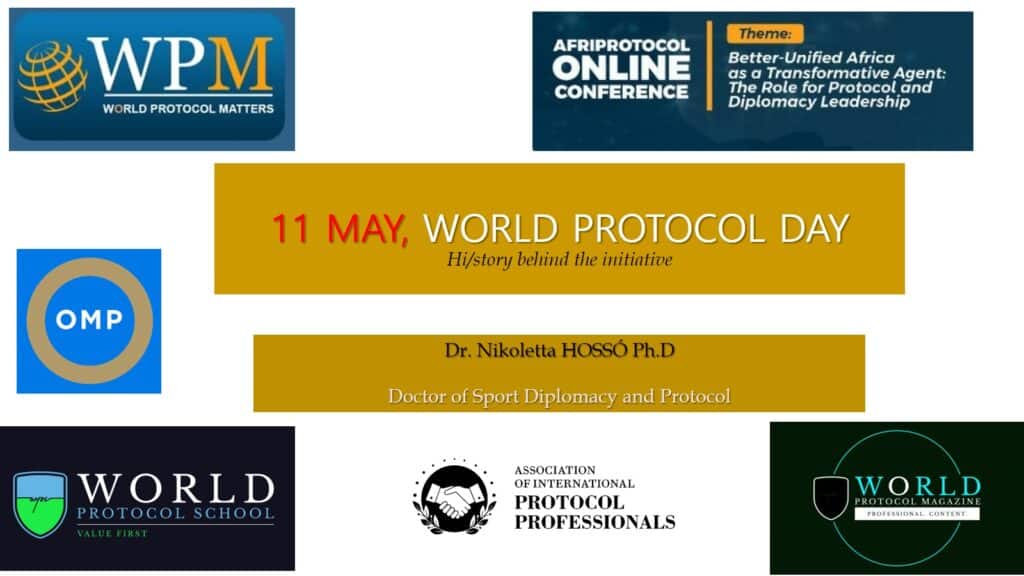
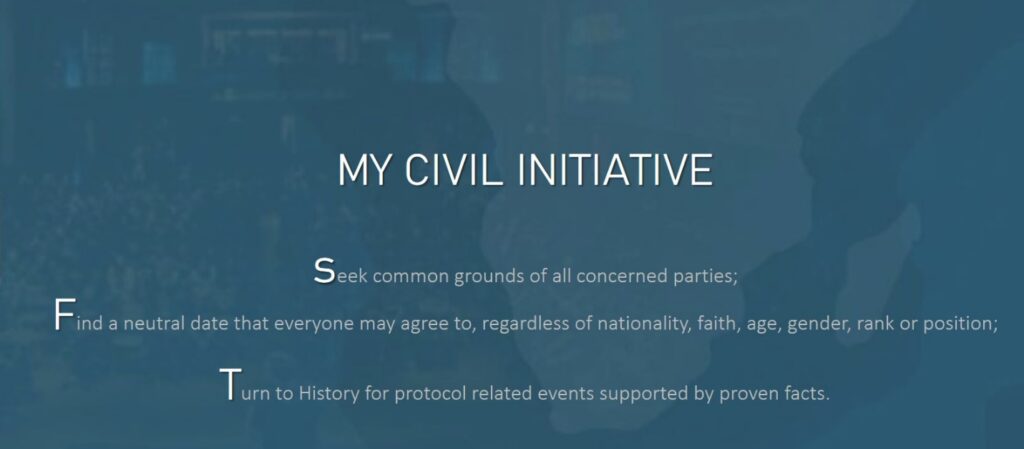
*Conclusion*
The Afriprotocol Online Conference provided a platform for insightful discussions and knowledge sharing on Africa’s diplomatic landscape. As the continent continues to navigate the complexities of global affairs, it is clear that a more strategic, collaborative, and technologically savvy approach to diplomacy is required. By reimagining Africa’s diplomatic landscape, the continent can unlock its full potential, foster more effective partnerships, and drive sustainable development.
*Recommendations*
- African countries should prioritize diplomatic capacity building, focusing on cultural intelligence, effective communication, and strategic negotiation.
- Regional cooperation and integration should be enhanced through initiatives like the AfCFTA.
- Economic diplomacy should be leveraged to drive development and attract foreign investment.
- Africa’s diplomatic engagements should be guided by a long-term, strategic vision, prioritizing the continent’s interests and values.
- The need to support the World Protocol Matters Petition to the United Nation
*Final Thoughts*
The Afriprotocol Online Conference marked a significant milestone in the ongoing conversation about Africa’s diplomatic landscape. As the continent continues to evolve and grow, it is essential that its Protocol and diplomatic engagements adapt to meet the challenges and opportunities of a rapidly changing world. By embracing innovation, collaboration, and strategic thinking, Africa can redefine its role in global affairs and unlock a brighter future for its citizens.
In addition to these key takeaways, the conference emphasized the importance of soft power, regional integration, and global governance in enhancing Africa’s economic growth. By leveraging these factors, African countries can promote trade, investment, and economic cooperation, ultimately driving sustainable development and prosperity.
Reference:
Kenneth-Divine, P. (2024). Director, International Centre for Protocol and Diplomacy, Opening Remarks at the Afriprotocol Online Conference.
